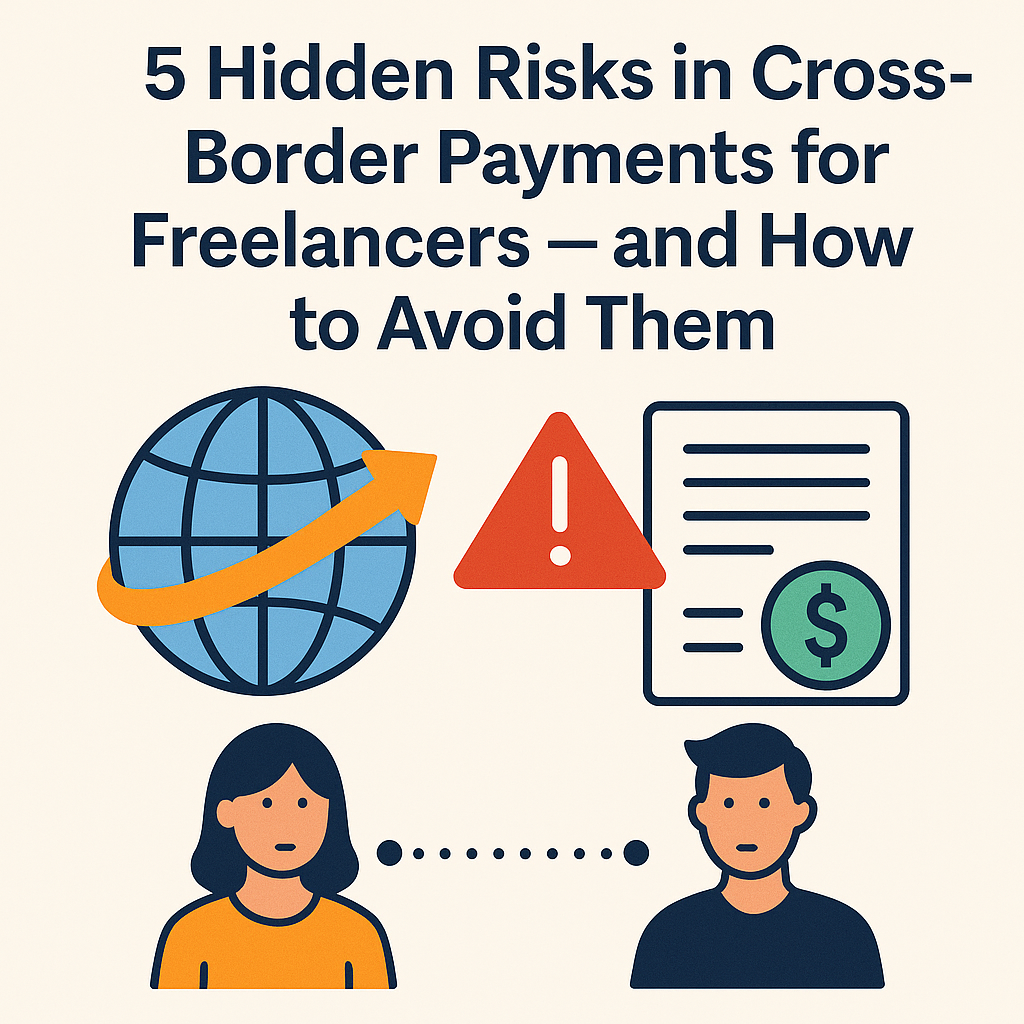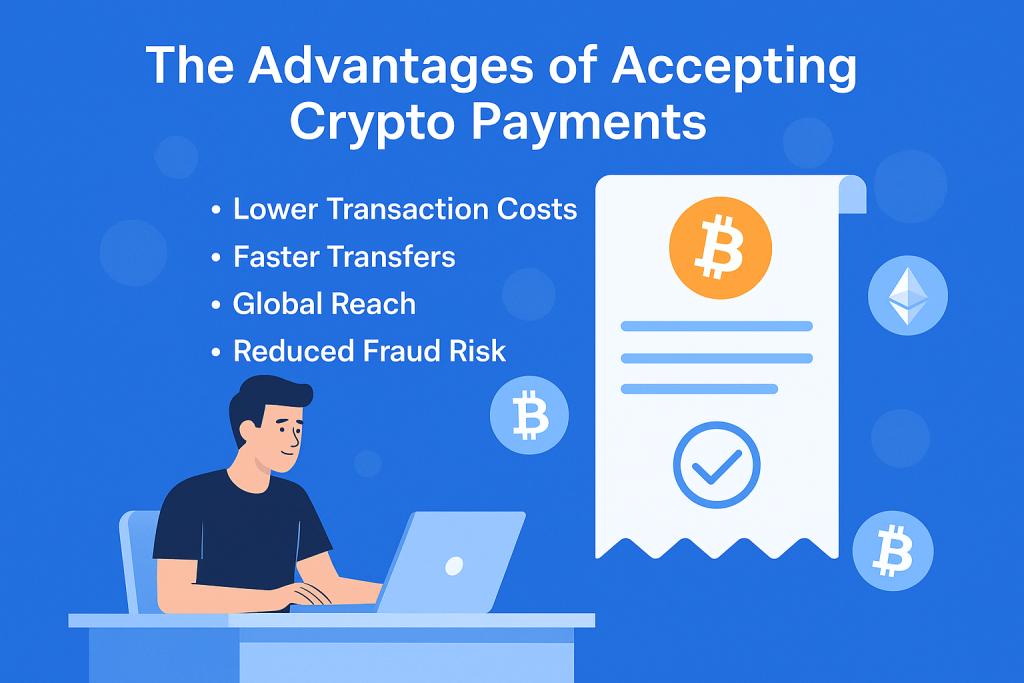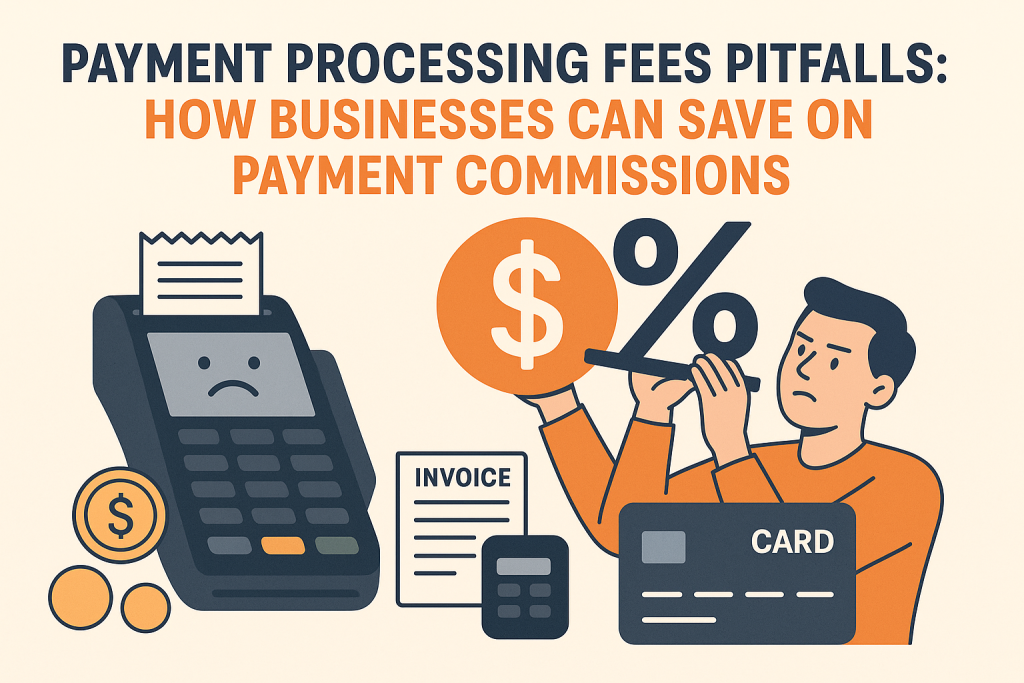Introduction
As the global freelance economy continues to grow, so does the complexity of getting paid across borders. While international clients open the door to higher earnings and greater opportunities, they also introduce a unique set of payment-related risks that can erode your income, disrupt your cash flow, and undermine your financial stability.
In this article, we’ll uncover the five most critical risks freelancers face when receiving international payments—and show you actionable strategies to mitigate them. Whether you’re working with clients in the U.S., Europe, the Middle East, or Southeast Asia, mastering payment logistics is essential to scaling your freelance career.
1. Delayed Payments: The Silent Income Killer
The Risk:
Freelancers often experience long payment cycles—days or even weeks—especially when dealing with overseas clients and traditional banks.
How to Avoid It:
- Use real-time or same-day payment systems that support international payouts.
- Define strict payment terms in your contracts and invoice schedules.
- Adopt tools like Neomo, which prioritize immediate payment processing after work delivery.
SEO keywords to note: delayed freelancer payments, real-time payouts, international invoice delays
2. Excessive Fees and Hidden FX Charges
The Risk:
Payment service providers often apply opaque fee structures, including transaction fees, intermediary bank charges, and currency conversion markups—significantly eating into your profit.
How to Avoid It:
- Choose providers with transparent fee policies and favorable FX rates.
- Avoid traditional SWIFT transfers for smaller payments.
- Consider crypto-enabled payment options to bypass banks and reduce costs.
SEO keywords: payment processing fees, FX fees for freelancers, hidden international transfer charges
3. Account Freezes Due to Compliance Flags
The Risk:
A sudden freeze on your payment account can halt your entire operation—often triggered by vague “compliance” issues or flagged transactions.
How to Avoid It:
- Work with platforms that are fully compliant with local and international KYC/AML regulations.
- Keep transaction descriptions and invoices consistent and professional.
- Always have a backup payment channel (e.g., secondary account or wallet).
SEO keywords: freelancer account frozen, payment platform compliance, AML issues with payouts
4. Unsupported Countries or Currencies
The Risk:
Not all payment platforms operate in emerging or frontier markets. Some exclude countries entirely or impose currency restrictions, leaving freelancers unpaid or underpaid.
How to Avoid It:
- Select platforms that support your country and clients’ regions (e.g., India, Pakistan, Vietnam, MENA).
- Use multi-currency wallets and accounts to retain value in local currencies.
- Platforms like Neomo are designed for high-risk and underserved markets.
SEO keywords: freelancer payment in restricted countries, multi-currency wallet, international freelance payouts
5. No Visibility or Payment Tracking
The Risk:
Once the client clicks “send,” most freelancers have zero insight into where their money is, when it will arrive, or what fees are applied in transit.
How to Avoid It:
- Use payment solutions with real-time tracking and transaction transparency.
- Automate email confirmations, receipts, and client-side logs.
- Create an integrated dashboard where you and your client can both monitor the payment process.
SEO keywords: payment tracking tools, real-time transaction visibility, freelance payment dashboards
Conclusion: Optimize for Speed, Safety, and Transparency
Getting paid should never be the hardest part of your job. Yet for many freelancers, cross-border payments remain a major barrier to sustainable income. The good news? With the right tools and awareness, you can take full control of your financial pipeline.
Neomo helps freelancers receive global payments instantly, with low fees, no hidden charges, and full transparency—so you can focus on doing your best work, not chasing invoices.




